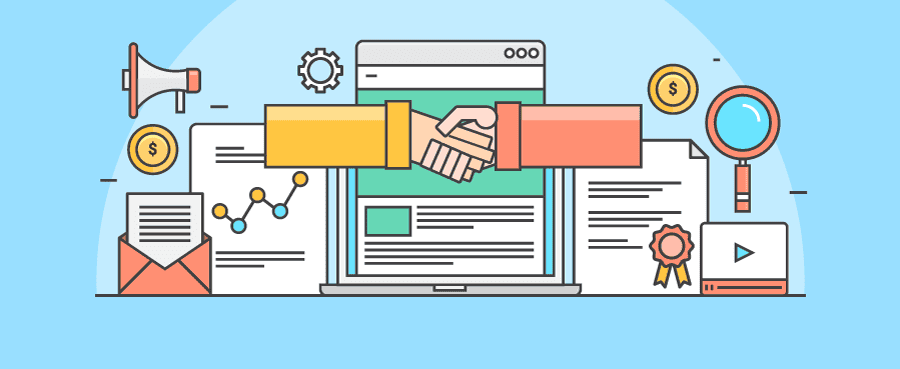Affiliate marketing in real estate is growing rapidly. As more buyers and sellers start their journey online, affiliate marketers are finding new ways to earn commissions without becoming full-time agents. But if you’re serious about real estate affiliate marketing, there’s one tool you can’t afford to ignore: IDX—Internet Data Exchange.
IDX allows you to display property listings from the local MLS directly on your website. It’s not just a technical upgrade—it’s a powerful revenue tool that can help you drive traffic, generate leads, and boost your affiliate earnings.
In this article, we’ll explain what IDX is, why it’s essential for real estate affiliate marketers, how to set it up, and how to make money from it. Whether you’re new to affiliate marketing or looking to take your website to the next level, this guide will help you understand how IDX can become your competitive advantage.
What Is IDX?
Internet Data Exchange (IDX) is a technology that allows real estate professionals to display active property listings from their local Multiple Listing Service (MLS) directly on their websites.
MLS platforms are where licensed agents list homes for sale. With IDX, you don’t need to send your users to Zillow or Redfin to view listings. You can keep them on your website, browsing real-time property data. IDX pulls this information from the MLS and shows it through a search-friendly, attractive interface.
You need to be a licensed real estate agent or partner with one to legally use IDX. But once you’re connected to the MLS through a certified IDX provider, your website becomes a live, updated listing platform.
What Is Real Estate Affiliate Marketing?

Real estate affiliate marketing is the process of earning a commission by promoting products, services, or leads related to the real estate industry.
As an affiliate marketer, you don’t need to sell homes yourself. Instead, you connect your audience to:
- Real estate agents or brokerages
- Home service providers (mortgage lenders, inspectors, movers)
- Home decor and furniture companies
- Lead generation platforms
- Online real estate courses or tools
You earn money when someone clicks your affiliate link and takes an action—such as signing up, requesting a quote, or making a purchase.
Why IDX and Affiliate Marketing Work So Well Together
1. IDX Attracts Highly Targeted Traffic
People who visit real estate websites with IDX listings are actively looking for homes or investment properties. This kind of intent-driven traffic is highly valuable for affiliates.
They’re not browsing for fun—they’re looking to buy, sell, or move. You can promote relevant services such as:
- Mortgage comparison tools
- Home Insurance
- Moving company quotes
- Smart home gadgets
- Real estate investment guides
With IDX, your site becomes a hub for people already in the buying mindset.
2. IDX Increases Website Engagement
Sites with IDX listings keep users on the page longer. Visitors can search for properties, view maps, save listings, and even schedule showings.
This extra time on site helps:
- Increase the chances of affiliate clicks
- Improve SEO rankings
- Build brand trust and authority
The longer people stay on your website, the more likely they are to interact with your affiliate content.
3. IDX Helps Build Email Lists
Many IDX platforms come with built-in lead capture tools. For example:
- Require email sign-up to view full listing details
- Allow users to save their favorite homes
- Offer email alerts for new listings
You can then use your growing email list to send affiliate offers related to real estate, home improvement, or financial services.
4. IDX Enables Hyperlocal Targeting
Affiliate marketing works best when it’s specific. With IDX, you can create pages focused on particular neighborhoods, price ranges, or home types.
Some examples:
- “Luxury condos in Miami Beach under $1M”
- “Family homes near top schools in Austin”
- “Fixer-uppers for real estate investors in Detroit”
Each of these pages can contain:
- Relevant IDX property listings
- Local content (schools, parks, transport)
- Affiliate links to services in the area
This targeted content brings in traffic from Google and improves affiliate conversion rates.
5. IDX Builds Long-Term SEO Value
Unlike pay-per-click ads or social media posts that disappear quickly, IDX listings create searchable pages that get indexed by Google.
With the right SEO strategy, your IDX-powered site can start ranking for:
- “Homes for sale in [City]”
- “Waterfront property listings”
- “Cheap houses for sale in [State]”
This means free traffic for years to come. And every visitor can become an opportunity for affiliate revenue.
How Affiliate Marketers Can Use IDX Legally
Here’s the most important thing: you can’t use IDX on just any website. IDX access is limited to licensed real estate professionals or those working under a brokerage that is part of the MLS.
If you’re not licensed, you still have two options:
Option 1: Partner with a Licensed Agent or Broker
- Build or co-manage a real estate website under their license
- Use your affiliate marketing skills to bring traffic
- Share the revenue through referrals, ad income, or leads
Option 2: Get Your Real Estate License
- This gives you full control over your IDX site
- You can legally display MLS listings and earn referral fees
- The cost and time investment is moderate (varies by state)
Once you have access, you can use an IDX provider like:
- IDX Broker
- Showcase IDX
- iHomefinder
- Realtyna
- Real Geeks
These tools offer website plugins, lead capture features, SEO tools, and mobile-optimized listing displays.
Real-World Monetization Strategies Using IDX
Here’s how real estate affiliate marketers are making real income using IDX websites:
1. Referral Commission to Agents
When a lead from your IDX website turns into a client, you can refer them to an agent and receive a 25% referral fee on the closing commission.
This is one of the highest-paying forms of affiliate marketing in real estate.
Example:
- You refer a buyer to an agent
- The agent closes a $500,000 home
- Commission is 2.5% = $12,500
- Your referral cut = $3,125
Repeat this a few times a month and you’ve built a strong income source.
2. Affiliate Partnerships with Home Services
You can partner with brands offering:
- Mortgage rate tools
- Real estate investment platforms
- Title and escrow services
- Smart home tech (Ring, Nest)
- Furniture and decor shops
Place links in your blog posts, and guides, or right next to listings.
3. Sell or Promote Digital Products
Use IDX traffic to promote eBooks, homebuyer checklists, courses, or investment tools. These products can be your own or from an affiliate partner.
Example: “The First-Time Buyer’s Toolkit – Free Download” linked to an email sign-up form. After that, follow up with affiliate offers via email.
4. Display Targeted Ads
Once your site gets traffic, you can show Google AdSense or banner ads from affiliate networks.
Even a few thousand visitors a month can generate ad income with high CPC (cost per click) in real estate.
Best Practices for Success
1. Focus on Niche Locations or Niches
Instead of building a general real estate site, go narrow. Choose:
- A specific city or county
- A unique niche (vacation homes, new construction, investment properties)
Niche sites perform better in SEO and convert at higher rates.
2. Combine IDX with Content Marketing
Don’t rely on listings alone. Create blog posts and pages like:
- “Best school districts in [City]”
- “How to get a mortgage with low credit”
- “Is now a good time to buy in [Neighborhood]?”
Add affiliate links naturally within these posts.
3. Optimize for Mobile
Most users browse real estate sites from mobile devices. Use IDX providers that offer mobile-responsive layouts and fast loading times.
4. Follow Compliance Rules
MLS boards have strict rules about how IDX data is displayed. Always:
- Attribute listing data to the source
- Show updated information
- Don’t alter listing data
Your IDX provider will help you stay compliant.
Frequently Asked Questions
Q: Can I use IDX without being a real estate agent?
A: You need to be licensed or partner with a licensed brokerage that has MLS access. Non-agents can still collaborate and profit through partnerships.
Q: Is IDX free?
A: No. Most IDX services charge a monthly fee ($40–$100+), and some MLS boards charge additional fees.
Q: How long does it take to earn affiliate income from IDX?
A: It depends on your marketing efforts. Some see results in 2–3 months, while others take longer. SEO traffic builds over time, but referrals and affiliate offers can generate income sooner.
Q: Can I use IDX on WordPress?
A: Yes. Most IDX providers offer WordPress plugins that make it easy to integrate listings into your site.
Q: What’s the best way to make money from IDX?
A: The most profitable method is often referring qualified leads to agents for a commission. Other methods include promoting related services, running ads, and selling digital products.
Conclusion
IDX isn’t just for agents—it’s a powerful asset for real estate affiliate marketers. With the right setup, IDX can help you attract high-quality traffic, generate leads, and earn affiliate commissions from people actively involved in the real estate market.
While there are some entry requirements (like licensing or partnerships), the rewards can be substantial. Whether you’re promoting mortgage tools, home services, or simply referring buyers to agents, IDX gives you a competitive edge that generic content sites can’t match.
If you’re serious about earning long-term, passive affiliate income in real estate, investing in an IDX-powered website is one of the smartest moves you can make.













